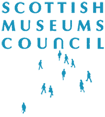
Museum / gallery specific organsiations
The ADAPT Trust
Access for Disabled People to Arts Premises Today (ADAPT) was set up in 1989 and assists arts and heritage venues to create effective access for all. They have become one of the lead agencies for access audits on arts premises. Assessments cost around £900 (for 2-3 days, including a report). They offer grant aid to certain disabled groups and various training courses.
Tel: 0141 556 2223
E-Mail: [email protected]
Website: www.adapttrust.co.uk
Insite
Insite is a consultancy for management and training. Although they do not advise museums and galleries exclusively, they do have experience in this area. Insite put strong emphasis on disability awareness and have provided some of the content for SMC factsheets.
Contact: Marista Leishman, 9/23 St Leonard’s Crag, Edinburgh EH8 9SP
Tel/fax: 0131 667 1246
No website
Intellectual Access Trust (INTACT)
The Intellectual Access Trust (INTACT) was set up in 1995 to raise awareness of the social, educational, cultural and economic importance of making displays more accessible to people with learning or communication difficulties. They offer professional advice on intellectual access and their charges vary according to client requirements. INTACT published Access in Mind in 1999 (see Access and the DDA Resources), which is a very well respected document on intellectual access.
Tel: Ann Rayner 0131 337 6001
E-mail: [email protected]
No website
MLA (The Museums, Libraries and Archives Council)
MLA offers information and guidance on disabled access and supports access related projects. They currently offer various publications on the subject (see Access and the DDA Resources), including bulletins addressing specific areas of disability, developed as part of the European Year of Disabled People 2003.
Tel: Marcus Weisen 020 7273 1408
E-mail: [email protected]
Website: www.mla.gov.uk
Museums and Galleries Disability Association (MAGDA)
MAGDA is part funded by Resource, to improve access to UK museums and galleries by disseminating best practice and providing a forum for discussion by professionals. MAGDA publish the magazine Barrierfree (see Access and the DDA Resources) on a quarterly basis, which looks at current practice, case studies, etc. The website is used as a central information repository.
For MAGDA Scotland tel: Christine Thompson 0131 247 4435
E-mail: [email protected]
Website: www.magda.org.uk
Vision Sense
Vision Sense are based in Tyne and Wear. They offer advice, training and access audits to a variety of organisations, including museums and galleries in Scotland. They have been involved with the Group for Education in Museums (GEM) and have run Disability Equality Training Days for SMC.
Tel: 0845 108 0553
Website: www.visionsense.co.uk
Other organisations
Capability Scotland
This is Scotland’s largest disability organisation, offering specific services to both children and adults, case study examples, DDA advice, etc.
Tel (Advice Service): 0131 313 5110
Website: www.capability-scotland.org.uk
Centre for Accessible Environments
The Centre for Accessible Environments is an information provider, not a campaigning group, and a forum for dialogue between providers and users. CAE considers how the built environment can best be made or modified to achieve inclusion by design.
Tel: 020 7357 8182
E-mail: [email protected]
Website: www.cae.org.uk
Disability Rights Commission
This is a UK wide body which keeps abreast of all the latest developments in terms of disability legislation in particular, including accessible versions of the DDA. DRC offer a range of information and guidance and have an awareness raising function.
Scottish office: 0131 444 4300
Website: www.drc-gb.org
Mencap
Mencap is the UK's leading learning disability charity working with people with a learning disability and their families and carers. They fight for equal rights, campaign for greater opportunities and challenge attitudes and prejudice. Mencap also provide advice and support to meet people's needs throughout their lives. They are an individual membership organisation, with a local network of more than 1,000 affiliated groups.
Tel: 020 7474 0454
Website: www.mencap.org.uk
Plain English Campaign
Plain English Campaign is an independent pressure group fighting for public information to be written in plain English. They have more than 3500 registered supporters in 70 countries. 'Public information' means anything people have to read to get by in their daily lives. 'Plain English' is language that the intended audience can understand and act upon from a single reading.
Email: [email protected]
Website: www.plainenglish.co.uk
Royal National Institute for Deaf People (RNID)
RNID is the largest charity representing the 9 million deaf and hard of hearing people in the UK. As a membership organisation, they aim to achieve a radically better quality of life for deaf and hard of hearing people. They do this in many ways: campaigning and lobbying, providing information, offering training courses, providing communication services, etc.
Tel: 020 296 8000
Website: www.rnid.org.uk
Royal National Institute for the Blind (RNIB) Scotland
RNIB Scotland promotes the interests of the 180,000 people in Scotland who have serious sight problems. They deliver a wide range of services for people who are blind and partially sighted in the fields of employment, education, family support, social work, social care, accessible information and the built environment. RNIB also campaign for the civil rights and inclusion of people with sight problems within the community.
Tel: 0131 311 8500
Email: [email protected]
Website: www.rnib.org.uk
Scottish Accessible Information Forum (SAIF)
SAIF aims to make information more accessible to everyone who needs it. SAIF supports the rights of disabled people and carers in having access to timely and accurate information about a wide range of services. SAIF believes that, rather than be forced to rely on others, disabled people should receive information directly and in their preferred format. This will help to enable them to make informed choices and live independent lives as equal members of society.
Tel: 0141 226 5261
E-mail: [email protected]
Website: www.saifscotland.org.uk
UPDATE
UPDATE is Scotland’s National Disability Information Service. They have a programme of training courses on, for example, DDA awareness. They disseminate information on good practice and provide disability friendly training premises, plus they have a signposting function. They have taken over part of the role of Disability Scotland (no longer in existence).
Tel (Information): 0131 558 5207
Website: www.update.org.uk
